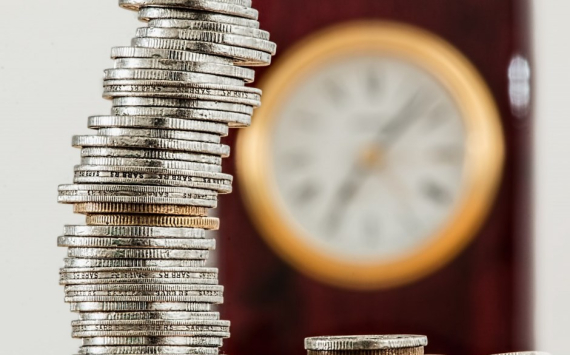Чирков максим андреевич
ОБРАЗОВАНИЕ
Request from 185.204.24.170 via cp3067 cp3067, Varnish XID 113872603
Upstream caches: cp3067 int
Error: 429, Too many requests at Wed, 02 Oct 2024 00:59:08 GMT

Такой страницы не существует,
«Деловые люди Москвы» — проект о персонах, которые своими идеями, словами и поступками оказывают большое влияние на развитие и процветание Москвы.
Российский государственный деятель, начальник Контрольно-аналитического управления в финансово-бюджетной сфере Федерального казначейства
либо ссылка по которой вы перешли,
В 2004 году избран депутатом муниципального образования Гагаринское в Москве. Переизбирался в 2008 и 2012 годах.
Цитаты
Основное место работы или службы: Общество с ограниченной ответственностью «Машиностроительное предприятие «МАША»

Чирков Максим Андреевич родился 11 августа 1980 года.
Благодаря автоматическому подсчету количества упоминаний персоны в новостях разделов «Московские новости» и «Московские пресс-релизы» на портале формируется рейтинг популярности и влияния персон. Коллектив ГлобалМСК.ру отслеживает изменения рейтинга и поощряет участников проекта за успехи. В целом рейтинг участников строится на основе глубокого анализа активности PR-служб известных людей, а также отражает качественное состояние информационного поля, формируемого СМИ и пресс-службами вокруг организации.
В настоящее время является членом Бюро Совета партии «Справедливая Россия».
Данная норма будет способствовать защите людей, которые долгие годы работали и внесли свой вклад в общество. 30-летний трудовой стаж является серьезным достижением. В то же время, эта мера поможет повысить минимальную планку для людей, которые работали и не бездельничали без уважительной п
не работает должным образом.
Сведения об исполнении обязанностей депутата на непостоянной основе: депутат муниципального Собрания внутригородского муниципального образования Гагаринское в городе Москве
Сведения об исполнении обязанностей депутата на непостоянной основе: депутат муниципального Собрания внутригородского муниципального образования Гагаринское в городе Москве на непостоянной основе
Родились в один день
Выборы депутатов Муниципального Собрания внутригородского муниципального образования Гагаринское в городе Москве третьего созыва

Сведения об исполнении обязанностей депутата на непостоянной основе: депутат муниципального Собрания внутригородского муниципального образования Гагаринское в г.Москве
В 2003 году окончил технологический факультет МГУ «Станкин».
Цель проекта – создать комфортное информационное пространство для всех субъектов рынка, а также познакомить читательскую аудиторию с деловыми людьми Москвы.
В 2009 году баллотировался в Мосгордуму, но попасть в пятый созыв не смог.
«Стоимость металла продолжит увеличиваться. Причем это связано не только с действиями определенных стран, но и общей санкционной риторикой. Дело в том, что из-за ограничений появились нарушения логистических цепочек, которые существовали в течение длительного времени. Именно по этой
Мы создали внушительную базу персон в Москве, в которой содержится информация о карьерном пути, образовании и другие важные сведения о человеке.
Сведения об исполнении обязанностей депутата на непостоянной основе: депутат Совета депутатов муниципального округа Гагаринский в городе Москве на непостоянной основе
Коллеги
Занимаемая должность (или род занятий): доцент кафедры политической экономии экономического факультета

Занимаемая должность (или род занятий): заместитель генерального директора ООО МП «МАША» по экономике
If you report this error to the Wikimedia System Administrators, please include the details below.
Недружественные страны продолжают вводить незаконные и бессмысленные санкции против России, хотя это больше наносит ущерб им самим. Поэтому я считаю, что мы также можем использовать методы, которые ухудшают рейтинг этих недружественных стран относительно России. Это позволит защитить друже
В 2009 году стал доцентом экономического факультета МГУ.
В 2011 и 2019 году пытался пройти в Госдуму.
Субъект выдвижения: Региональное отделение Социалистической политической партии СПРАВЕДЛИВАЯ РОССИЯ — ПАТРИОТЫ — ЗА ПРАВДУ в городе Москве
Основное место работы или службы: Московский государственный университет иени М.В. Ломоносова, экономический факультет
Упоминания в новостях
Основное место работы или службы: экономический факультет Московского государственного университета имени М.В. Ломоносова

Занимаемая должность (или род занятий): заместитель генерального директора ООО МП «МАША» по экономике
В 2004 году получил диплом МГУ имени Ломоносова по специальности «Национальная экономика».
«Довольно много стран прекрасно видят возникшую геополитическую напряженность. Именно по этой причине они пытаются сделать все возможное, чтобы перестраховаться. Политика Вашингтона, которая основывается на введении санкций против неугодных государств, является безрассудной. Именно п
Максим Андреевич
В 1997 году устроился в компанию отца «МАША» на должность технического переводчика. Через некоторое время был повышен до начальника отдела электронных средств учета и связи. Увольнялся уже с должности заместителя директора по экономическим вопросам.
Субъект выдвижения: Региональное отделение Социалистической политической партии СПРАВЕДЛИВАЯ РОССИЯ — ПАТРИОТЫ — ЗА ПРАВДУ в городе Москве
Основное место работы или службы: Московский государственный университет имени М.В. Ломоносова, экономический факультет
ПОЛИТИЧЕСКАЯ ДЕЯТЕЛЬНОСТЬ
ГлобалМСК.ру уделяет особое внимание деятельности известных персон: политиков, чиновников, бизнесменов, банкиров, деятелей культуры и спорта. Их мнение во многом определяет развитие политической, общественной и экономической жизни Москвы и Московской области. Раздел постоянно редактируется нашими журналистами на предмет актуальности информации. Здесь можно найти информацию о генеральных директорах и президентах топовых Московских компаний, чиновниках и общественных деятелях, которые играют ключевую роль в развитии региона.

В 2009 году успешно защитил диссертацию перед сотрудниками кафедры политической экономики МГУ.
Сведения об исполнении обязанностей депутата на непостоянной основе: депутат муниципального Собрания внутригородского муниципального образования Гагаринское в г.Москве
Рейтинг ГлобалМСК.ру

ТРУДОВАЯ ДЕЯТЕЛЬНОСТЬ.

Статистика профиля

Источники:
https://ru.wikipedia.org/wiki/%D0%9C%D0%BE%D0%BB%D0%BE%D0%B4%D1%91%D0%B6%D0%BA%D0%B0._%D0%9D%D0%BE%D0%B2%D0%B0%D1%8F_%D1%81%D0%BC%D0%B5%D0%BD%D0%B0&rut=0dd3ac0366ebb6ef0bfbcf778d4b3d2a4bc690b45a63a7cda06f525533d5f765
https://globalmsk.ru/person/id/10127&rut=1c8c62272ad7d20a5e52b8808a7aa84b60a28dfacabf8df872cfc310f88ae1a5
https://viperson.ru/people/chirkov-maksim-andreevich&rut=be137a6917b456230223d19bbb8cfa27c1312b1aeb92767856b0331cc98b973a
https://election.gogov.ru/candidates/706972&rut=df6846602cc80ade704de7ba008837b76f07d956c9477a6b1ea024485d97cf67
https://m.youtube.com/watch?v=bpqacl1DxYE&rut=bab4f58858e334d7e4705e07341c295839e271e33f43442a174118841848e7d3
https://vyboroteka.org/data/candidates/113208-chirkov-maksim-andreevich&rut=6e58900dafd0abd1ab93cc6b0882c6f16e0e99df9e5f66c40226be5a9845c7a5
https://www.instagram.com/maxchir/&rut=3b1710ced550dd6ef0715634a2ff73c13755a9ab6a79c19ac083cab7af289385
https://spravedlivo.ru/4308015-3&rut=caa60619772378441f4280a0e72ec4a64b35e85bca34bda5b69405ab65a46583
https://spravedlivo.ru/4308015-2&rut=18faf043c26764e3bbb91a9a9215d340a5f4b660124c3e176d756c53aebb91d8
